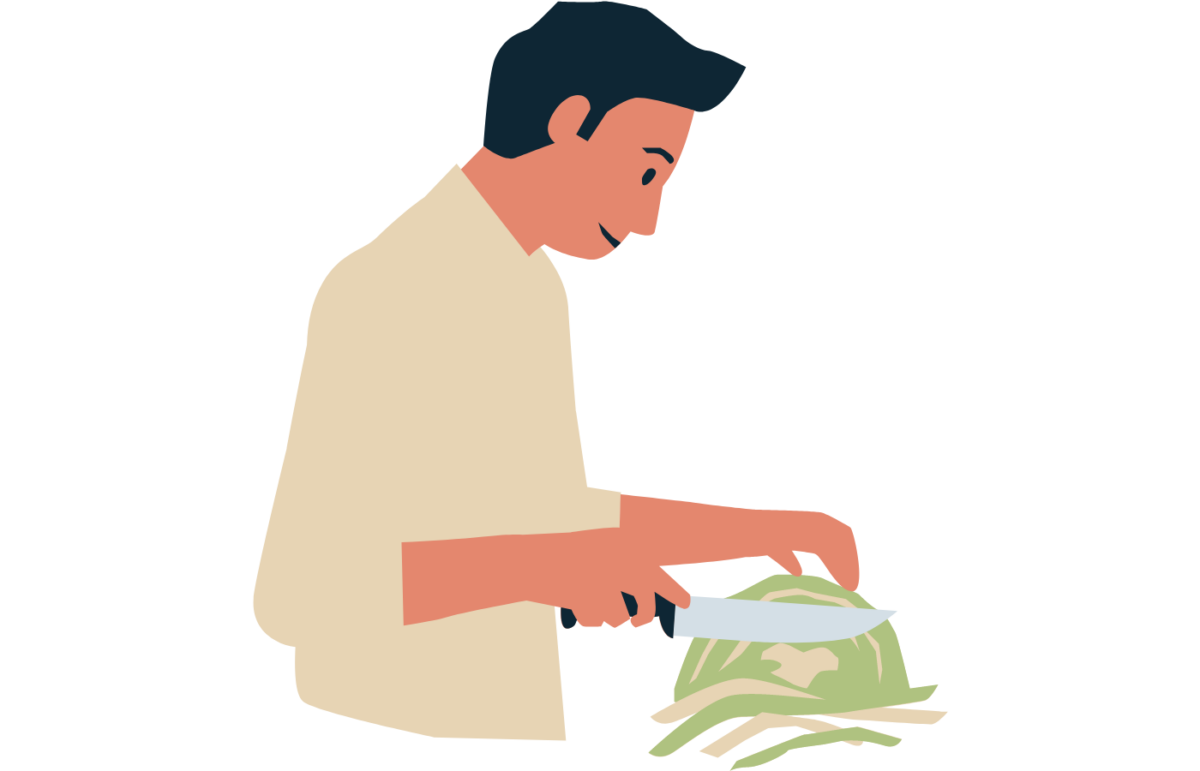6 unexpected ways to channel your anger constructively
 Written by
Julie Fernandes
Written by
Julie Fernandes 
Julie Fernandes
Julie Fernandes is a content writer specializing in blog posts, and works extensively with both...
Click here to know more

Srinithi Sridhar
Srinithi Sridhar is a trauma-informed and queer affirmative therapist. She primarily works with...
Click here to know more
Anger is often portrayed as a negative emotion and we try to suppress it. However, when you tend to suppress your emotions for too long, it’s only natural that it bursts like a volcano. Bottling up emotions can lead to severe consequences like developing depression, anxiety, and other health issues.
Learning to channel your anger constructively can help you avoid this. When you engage in healthier ways to process anger, you can identify and build other ways to express your anger instead of responding impulsively. In this article, we share 6 alternate activities that will help you manage your anger better and channel it into something more beautiful.
#1 Physical activity
Since 2018, researchers and healthcare experts have been stating that exercise increases life span and delays the chances of contracting chronic illnesses like cardiovascular diseases and Type 2 Diabetes.
Exercise is a constructive way to channel anger. It’s a way to vent the emotions accumulated over time through physical activities. This idea is backed up by extensive research conducted by experts in 2019 who found a strong correlation between physical activity and anger control.
Around 290 nurses in South Korea were asked to complete a survey with questionnaires related to general characteristics (like sex, age, marital status, religion, living arrangement, education, work department, shift work pattern, year practicing as a registered nurse, and current job position), and exercise behavior (measured using Stage of Exercise Behavior Change scale that describes the current exercise behavior and categorizes individuals into one of the five stages: pre-contemplation, contemplation, preparation, action, or maintenance stage).
After evaluating the survey results, researchers learned that people who engage in regular exercise exhibited lower levels of state anger and higher levels of anger control than those who did not. They also found that the levels of anger control decreased as the age, education level, and work experiences of nurses decreased.
How to effectively practice physical activities for constructive anger release
Whenever you feel the anger resurfacing, movement can be helpful to start to engage in those physical activities. Pay attention to sensations and allow the body to vent. Notice the tension in your muscles, the rhythm of your breath, and the release of energy with each movement. As you kick, punch, or move through the forms, visualize the anger dissipating with each exertion.
The more you move your body and exercise, the more it improves your mental health and keeps your anger issues under control. You can choose any activity like kickboxing or tai-chi, depending on your interest and fitness level. Explore and experiment to find an option that aligns with your interests.
Apart from these structured exercises, you can also consider including mindful walking or nature walks into your routine. Pay attention to your breath as you walk. Notice the sights, sounds, and smells around you. Whenever your mind wanders, gently bring your focus back to the present moment. Let go of worries about the past or future and immerse yourself fully in the experience of walking. Some places that can
These activities offer a serene environment that allows you to connect with nature while calming your mind. Rhythmic movement and immersion in natural surroundings can be incredibly therapeutic.
#2 Journaling
When it comes to self-expression, journaling is a powerful therapeutic tool. It offers a safe space to help relieve stress and process your thoughts. When you channel your ideas, feelings, and thoughts on a piece of paper, studies suggest that you take active steps toward stress management. It helps to declutter the mind and encourages us to become more intentional instead of spiraling. Moreover, it helps externalize the internal clutter and organize our thoughts, allowing for reflection and insight into our emotions and thought patterns.

When you express your emotions on paper, instead of displacing them in a person, you have a safer space for your emotions instead of shutting your emotions down or choosing violence. An added benefit is that it helps identify recurring themes, triggers, and patterns in their thoughts and behaviors which can be leveraged to create better and stronger relationships.
How do you journal for constructive anger release
When you feel angry, grab a journal and write down everything you’re feeling without censoring yourself. Let the words flow freely, expressing your anger in whatever form it takes – whether it’s through words, drawings, or even scribbles. Describe the situation or trigger that caused your anger. Write down the details of what happened, including any thoughts, actions, or words exchanged.
After expressing your anger, take a step back to reflect on what you’ve written. Are there any patterns or recurring themes in your anger? Can you identify any irrational beliefs or distorted thinking patterns? Understanding repetitive themes will help you become more self-aware and grounded.
Once you’ve gained some clarity, brainstorm potential solutions or coping strategies for dealing with the situation constructively. Write down any ideas or action steps you can take to deal with the underlying issues and prevent future outbursts of anger.
#3 Mindfulness and meditation
When you practice mindfulness and meditation, you prioritize introspection and start to constructively channel your anger into being present and distancing yourself from your triggers. Mindfulness helps to create a non-judgmental space for yourself where you observe your thoughts without being consumed by them. Instead of reacting to situations and making impulsive decisions, mindfulness helps you pause, reflect, and provide a measured response to anger.
It helps to regulate your emotions without suppressing or amplifying them thereby helping you reconnect with yourself. It also helps to have a balanced state of mind and nurtures resilience within you. In some time, you will notice that situations or triggers that typically make you angry or frustrated will gradually lose their ability to impact you negatively.
How to be mindful of constructive anger release
Start by accepting the presence of anger without judgment, followed by a deliberate pause to focus on controlled breathing. An intentional focus on your breathing acts as a stabilizing force and it creates a space between a person’s emotion and their reaction. Ultimately, bringing a sense of calmness.
Another technique is body scanning, where you identify physical sensations related to anger like muscle tension & increased heart rate, and observe them without any judgments. Having a detached perspective can help you maintain more clarity and understanding even when you feel like you are about to burst. The process helps people become more aware of their emotional state.
#4 Cooking or baking
Everyone knows that cooking meals at home is healthy but did you know that it’s also therapeutic? Cooking isn’t just about being mindful of your caloric intake but it’s also about building your personality. It may not ‘directly’ change your personality, but rather cooking can contribute to building certain aspects of it like developing discipline, boosting creativity, and building more patience and perseverance.
In 2017, Nicole Farmer (et. al.) conducted a systematic literature review of over 377 articles on the influence of cooking interventions on psychosocial outcomes. The researchers used the following terms to list out different studies: cooking, culinary, baking, food preparation, cookery, occupational therapy, mental health, mood, psychosocial, affect, confidence, self-confidence, self-esteem, socialization, and rehabilitation. Inclusion criteria included: adults, English, influence of cooking interventions on psychosocial outcomes. From the 11 articles that met the inclusion criteria, they found that community cooking can positively impact one’s socialization, self-esteem, quality of life, and affect.
In 2021, researchers at the University of Vermont conducted extensive research on college students and found an association between cooking and stress. For the study, participants were randomly assigned to one of four intervention groups: cooking classes and meal kits, cooking classes only, meal kit only, and control. Phase 1 consisted of weekly cooking classes for six weeks, where the participants actively prepared a recipe and engaged in a sensory analysis of the food. Phase 2 consisted of a 6-week meal kit intervention, where participants were provided with a recipe and ingredients for three meals, for six weeks. Participants completed the Perceived Stress Scale questionnaire at the start of the intervention and at the end of each phase to conclude that cooking helps keep our stress levels under control. Thus, underlining yet again that cooking is a constructive anger-release method.
How do you cook well for constructive anger release
Some dishes take more time and energy to cook than others. For cooking to be therapeutic, you can choose a dish that matches your energy level and mood. Choose dishes like biryani, pizza, dumplings, gulab jamun, or pani puri that require more hands-on preparation. The process of chopping, mixing, and cooking can help you channel your frustration into your dish.

It’s okay to be vigorous while cooking. While preparing dishes where you need the knead the dough or move your hands faster, you can use the moment to channel your anger into creating something meaningful and pleasing. Additionally, shifting your focus on the color, texture, and smells of different ingredients can help you calm down.
#5 Educate yourself
Explore books and articles related to mental health, psychology, or personal development, that teach valuable coping strategies. Enrol in certified courses or workshops on mental health that offer structured learning opportunities in areas that intrigue you.
When you start to understand the psychology behind thought processes and behaviors, you become self-aware. Instead of judging yourself or others for losing their temper, you start to connect the dots and understand why you feel anger arise within you. This change in mindset helps you view the world through a better lens.
How to educate yourself for constructive anger release
When it comes to educating yourself, the goal isn’t merely to distract yourself from the trigger but to enrich your life holistically. Identify tasks or skills that genuinely interest you, and dive deeper into them. Whether it’s through reading articles, and books, joining workshops, or enrolling in online courses, actively seek opportunities to expand your knowledge and understanding.
While learning new tasks, take moments to connect with your surroundings, focusing on your breath or the sensation of your feet on the ground. This simple act of grounding can help you collect your thoughts and focus better.
Another essential aspect of the constructive release of anger is setting structured routines. Allocate specific days in your week dedicated to learning and allow yourself to channel your energy in a positive direction. However, if you find yourself losing focus during your learning sessions, don’t be discouraged. Take a break, engage in a grounding exercise, or switch to a different activity briefly before returning to your educational pursuits. Remember – following a blueprint provides invaluable guidance and allows you to stay focused and committed to your growth journey.
#6 Constructive conversations
Anger is a negative and unpleasant emotion that most people try to suppress but it does more harm than good. This is where constructive conversations (careful articulation of thoughts and ideas) come into the picture. It helps you convey the reasons for your anger and straightforwardly express them. Moreover, it avoids solely blaming a person and focuses on finding solutions together.

The more you use the ‘I’ statements, the more you start to identify your triggers and connect deeper with yourself and others. For example, instead of saying, “You always make me angry,” try saying, “I feel frustrated when…”. Avoid vague or ambiguous language that can lead to misunderstandings. Most importantly, avoid raising your voice or using aggressive body language.
How to practice constructive conversations
While talking with others, avoid taking things personally and try to remain calm. Focus on having respectful conversations with each other and learn to express your emotions openly with each other.
Use more ‘I’ statements instead of ‘you’ statements to avoid an accusatory tone. For example, instead of saying, “You make me so angry when you’re late,” try saying, “I feel anxious and upset when plans are delayed, and I’m not informed ahead of time.” The key is to take ownership of your feelings and reactions instead of placing blame on others.
Focus more on listening and less on speaking. People feel acknowledged and heard when you actively listen to a person and pay attention to their body language. It helps them open up more and develop a bond that goes deeper than a verbal conversation. This gives space for the reciprocal of ideas.
Suppressing your emotions is never a good thing. The more you bottle up your emotions, the more you promote the build-up of negative emotions. When you use constructive ways to release your anger, you acknowledge your unpleasant emotions and move past them. It helps you to grow and develop a positive outlook on life.
Help support mental health
Every mind matters. Every donation makes a difference. Together, we can break down stigmas and create a more compassionate world.
Disclaimer: MyndStories is not a non-profit. We are a private limited company registered as Metta Media Pvt Ltd. We don't fall under Section 80G and hence you don't get a tax exemption for your contribution.
